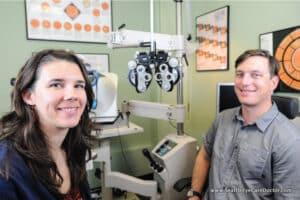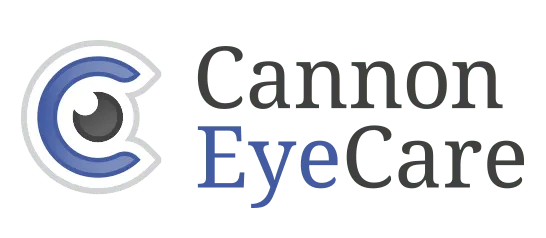Top-7 tips to prepare for your next eye exam

Top-seven tips to prepare for your next eye exam appointment:
As with a visit to see any physician, it is good to arrive prepared so that you can get the most out of your next visit with your local eye doctor. Whether you are seeing an optometrist or an ophthalmologist, chances are you will only have 10-40 minutes with the physician. You’ll want to make the most of your time in the eye exam to get the most benefit.
Follow these tips to get the most out of your eye exam:
1. Bring your best pair of glasses, even if you have seen this doctor before. This is even more important if you are going to a new vision care clinic. Even if you hardly wear them or the glasses are broken, valuable information about your prescription can be read from the lenses. This can help your eye doctor make key decisions about your NEW glasses Rx.
2. If you wear contacts and plan to get a new contact lens prescription, wear the lenses in to the office. If you are seeing a new doctor it will be very helpful if you can bring in the Rx for your contacts. This info can be found on the boxes your contacts came in, or the foils from the blister packs. Bringing this info will allow your optometrist to fine-tune your Rx instead of starting from scratch. This can save you time and frustration while resulting in a better Rx in the end.
3. Take a few moments to think about any eye problems you have been having. Feel free to make some notes on your symptoms, when they started, what makes them worse, and what helps. Your eye doctor will be inquiring about these things during your eye exam, so it is worthwhile to spend five minutes thinking (or jotting notes) about them in advance.
4. Call your parents (or grandparents)! You know they want to hear from you anyway, and it is important to know your family history of eye disease (glaucoma, macular degeneration, retinal detachment, etc) so that you can accurately complete the intake forms. Many eye diseases have a genetic component, so giving your eye doctor accurate info can effect your treatment plan. Bonus tip: if your aunt or cousin had an eye disease, it’s not really relevant because they are not that closely related to you. You should list eye history for primary family. Primary family members include grandparents, parents, siblings, and your children.
5. Bring your insurance card! If you intend to use vision or medical insurance at this office, make sure you come prepared….or be ready to pay out of pocket.
6. Also bring any eye drops or other eye-related medications with you to the eye exam appointment. This includes prescription meds from this office or from another provider as well as OTC (over the counter) preparations.
7. Be ready to actively participate in the conversation with your eye doctor. As with most doctor-patient relationships, this is a partnership that requires your input to get optimal results. Let’s say for example you know that your main issue is that the computer at work is blurry with or without your glasses. Go ahead and measure how far you are from that screen when seated comfortably. Then BRING THIS UP at the start of the eye exam. Waiting until the final moments of a doctor’s appointment to present new problems is never a good call.
Following these steps will allow you to get the most out of your visit to your eye doctor. Plus you can use this list to guide you towards better care with your other healthcare providers as well.
Sincerely, Dr. Mark Cannon, optometrist
Cannon EyeCare (at Market Optical) in Seattle, Washington

Top-seven tips to prepare for your next eye exam appointment:
As with a visit to see any physician, it is good to arrive prepared so that you can get the most out of your next visit with your local eye doctor. Whether you are seeing an optometrist or an ophthalmologist, chances are you will only have 10-40 minutes with the physician. You’ll want to make the most of your time in the eye exam to get the most benefit.
Follow these tips to get the most out of your eye exam:
1. Bring your best pair of glasses, even if you have seen this doctor before. This is even more important if you are going to a new vision care clinic. Even if you hardly wear them or the glasses are broken, valuable information about your prescription can be read from the lenses. This can help your eye doctor make key decisions about your NEW glasses Rx.
2. If you wear contacts and plan to get a new contact lens prescription, wear the lenses in to the office. If you are seeing a new doctor it will be very helpful if you can bring in the Rx for your contacts. This info can be found on the boxes your contacts came in, or the foils from the blister packs. Bringing this info will allow your optometrist to fine-tune your Rx instead of starting from scratch. This can save you time and frustration while resulting in a better Rx in the end.
3. Take a few moments to think about any eye problems you have been having. Feel free to make some notes on your symptoms, when they started, what makes them worse, and what helps. Your eye doctor will be inquiring about these things during your eye exam, so it is worthwhile to spend five minutes thinking (or jotting notes) about them in advance.
4. Call your parents (or grandparents)! You know they want to hear from you anyway, and it is important to know your family history of eye disease (glaucoma, macular degeneration, retinal detachment, etc) so that you can accurately complete the intake forms. Many eye diseases have a genetic component, so giving your eye doctor accurate info can effect your treatment plan. Bonus tip: if your aunt or cousin had an eye disease, it’s not really relevant because they are not that closely related to you. You should list eye history for primary family. Primary family members include grandparents, parents, siblings, and your children.
5. Bring your insurance card! If you intend to use vision or medical insurance at this office, make sure you come prepared….or be ready to pay out of pocket.
6. Also bring any eye drops or other eye-related medications with you to the eye exam appointment. This includes prescription meds from this office or from another provider as well as OTC (over the counter) preparations.
7. Be ready to actively participate in the conversation with your eye doctor. As with most doctor-patient relationships, this is a partnership that requires your input to get optimal results. Let’s say for example you know that your main issue is that the computer at work is blurry with or without your glasses. Go ahead and measure how far you are from that screen when seated comfortably. Then BRING THIS UP at the start of the eye exam. Waiting until the final moments of a doctor’s appointment to present new problems is never a good call.
Following these steps will allow you to get the most out of your visit to your eye doctor. Plus you can use this list to guide you towards better care with your other healthcare providers as well.
Sincerely, Dr. Mark Cannon, optometrist
Cannon EyeCare (at Market Optical) in Seattle, Washington
Pike Place Office
1906 Pike Pl Unit 8-b,
Seattle, WA 98101
University Village Office
2602 NE University Village St,
Seattle, WA 98105
Pike Place Office Hours
Monday
Closed
Tuesday
10:00 am - 5:00 pm
Wednesday
Closed
Thursday
10:00 am - 5:00 pm
Friday
10:00 am - 5:00 pm
Saturday
10:00 am - 5:00 pm
Sunday
Closed
University Village Office Hours
Monday
10:00 am - 6:00 pm
Tuesday
10:00 am - 6:00 pm
Wednesday
10:00 am - 6:00 pm
Thursday
10:00 am - 6:00 pm
Friday
10:00 am - 6:00 pm
Saturday
10:00 am - 6:00 pm
Sunday
Closed
